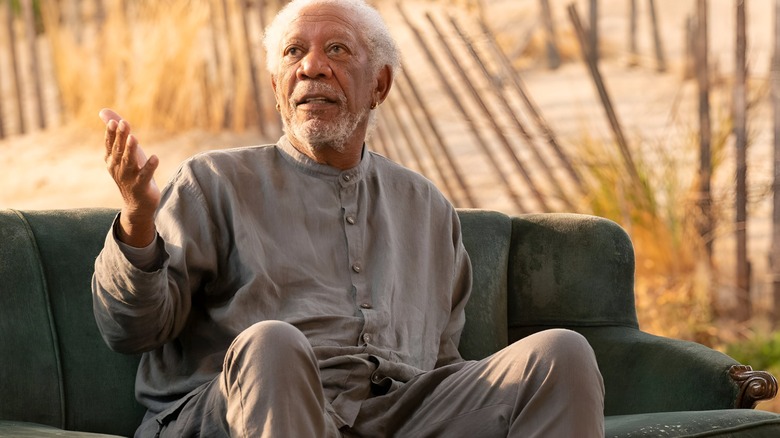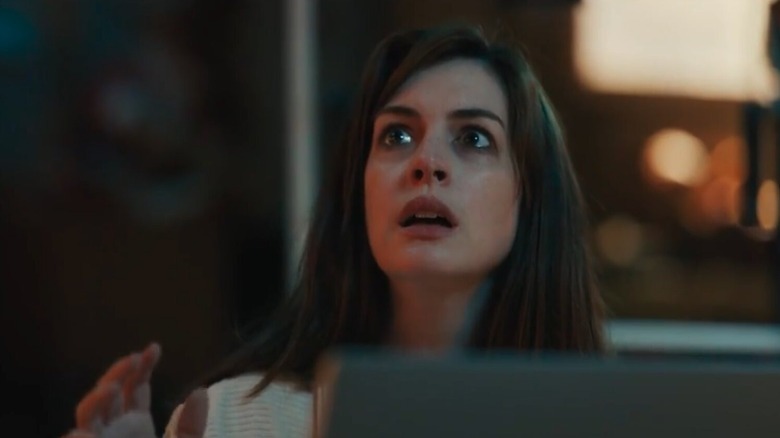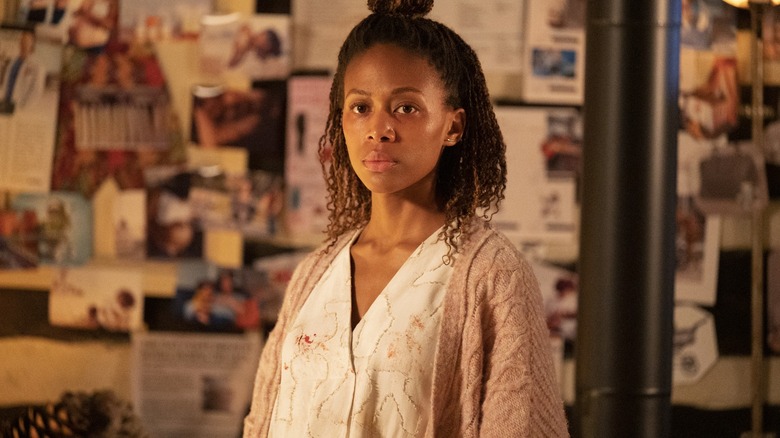A sci-fi anthology collection and a stacked solid would possibly look like a match made in heaven, as is the case with Charlie Brooker’s “Black Mirror.” The Netflix collection has featured everybody from Peter Capaldi to Miley Cyrus, leveraging a variety of performances that underline dystopian tales about expertise and its maintain over humanity. Though not each “Black Mirror” episode comes with a prescient or well timed commentary concerning the state of the world, the collection has undoubtedly set a typical for tv anthologies that dabble in speculative sci-fi.
Commercial
Nevertheless, not each style providing with a proficient A-list solid succeeds in making a mark, as some solely handle to convey an summary sense of scope with none which means hooked up to it. David Weil’s “Solos” is the proper instance of such hollowness, the place its critique of expertise comes solely within the type of episodic monologues. This is not a horrible thought on paper, because the psychological influence of dwelling in a hyper-technological society is price exploring on a microcosmic degree. However the issue with “Solos” is that not all monologues are intriguing sufficient to tune into, as a efficiency can solely be as spectacular because the writing. Ultimately, there is a lingering feeling of the characters speaking quite a bit, however not saying something of observe.
Commercial
So, why ought to followers of “Black Mirror” take a look at “Solos?” For starters, the tonal similarity between the 2 exhibits evokes thematic overlaps that time out our advanced relationship with expertise. Each exhibits make us ponder the horrifying implications of technological overreliance, which step by step invades our minds/our bodies and rewrites our sense of self. Moreover, “Solos” options a number of unbelievable episodes, together with “Sasha” and “Nera”, which provide a number of the sharpest critiques about consumerist tradition from a dystopian lens. And oh, we even have Morgan Freeman because the ever-present narrator, who seems all through “Solos” to weave disparate tales collectively into one (virtually) coherent story.
A disjointed collection with nice performances
Spoilers for “Solos” to observe.
“Solos” presents every episodic story as a monologue, the place the speaker is both alone or accompanied by at the least one listener (human or non-human) onscreen. Within the opening episode, “Leah,” the titular scientist (Anne Hathaway) spends most of her time in isolation, as she is struggling to crack the sensible software of time journey. These escalating frustrations really feel extra pronounced on account of her mom’s terminal sickness, including to her urgency to the necessity for a scientific breakthrough. When that does occur, Leah speaks to varied variations of herself, unraveling the threads of existential dread that include the worry of shedding a beloved one. After all, Leah’s plight is extra sophisticated than this, which Hathaway conveys to visceral impact, however the total execution feels disconnected from these intense feelings.
Commercial
Though most episodes in “Solos” are as uneven as “Leah” (together with one the place Anthony Mackie’s Tom speaks to a robotic look-alike meant to switch him after his imminent loss of life), let’s speak about a number of the good things. In “Sasha,” a younger girl (Uzo Aduba) has survived an apocalypse alone by dwelling in a sensible residence for 20 years, however sooner or later, her AI insists that it’s secure to step exterior. Sasha is terrified, launching into an almost-Shakespearean rant about how she distrusts the expertise that has stored her secure for over twenty years, as she believes that the AI is deceiving her. Aduba’s unbelievable, passionate efficiency apart, the episode cracks upon the conundrum that comes with our over-reliance on expertise, which frequently shapes who we’re as people. When hordes of individuals depend on automation programs for on a regular basis survival, can this identical intuition be relied upon when it is time to go away such scientific predictability behind?
Commercial
Solos’ concentrate on expertise is filtered by means of existential dread and angst
“Solos” does not provide clear-cut solutions, however it presents extra moral dilemmas, akin to in “Nera,” the place a mom (Nicole Beharie) offers delivery to a baby whose accelerated getting older permits the 2 to speak on painfully trustworthy phrases. The 2 stay remoted on account of horrible climate, which breeds additional mistrust between the frightened mom and her quickly getting older son, however they’re capable of finding frequent floor in shared loneliness. This episode is extra horror-adjacent than most, however portrays the conflicting sentiments prompted by somebody who shouldn’t be fairly human, as expertise has altered our biologies in irreversible methods.
Commercial
There’s additionally Freeman as Stuart, a affected person in an Alzheimer’s facility who narrates each episodic opening and finally ends up taking part in a way more vital position within the bigger narrative. Stuart’s presence in “Solos” is meant to maneuver us to tears, however this does not play out as meant, very like the collection’ half-hearted efforts to make us really feel disconnected from our fast realities. That is no “Devs,” which manages to enthrall us with its abstractions and makes use of its scientific setting to boost pertinent queries. In distinction, “Solos” largely feels devoid of honest creativeness.




